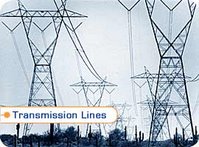 The utiltiy dropped plans to run a high power line through most of Loudoun County. There are very rich and powerful people there so it is no wonder. People are such hypocrites when it comes to energy. They want to use as much as they can but do not want to be inconvenienced by even the mere sight of a tower and lines.
The utiltiy dropped plans to run a high power line through most of Loudoun County. There are very rich and powerful people there so it is no wonder. People are such hypocrites when it comes to energy. They want to use as much as they can but do not want to be inconvenienced by even the mere sight of a tower and lines.Dominion is planning to use the I-66 right of way but the rich horse country citizens will make it virtually impossible to build the lines anywhere. They will fund the obstructionist environmental groups to block it every else as an encroachment on scenic views. Yet all of these people probably live in large homes that gobble electricity. They probably have multiple televisions, computers and other appliances. They probably have 50 incandescent light bulbs too. Such illogical hypocricy must be challenged and overcome for the good ot the greater society.






